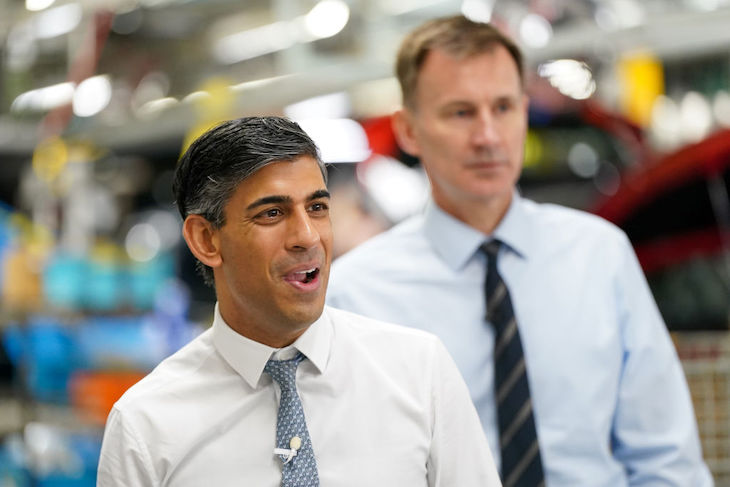When Jeremy Hunt announced his ‘Autumn Statement for Growth’ last week, there was a slight problem: the Office for Budget Responsibility (OBR) had actually revised down its growth forecasts. Apart from this year and the last year for the forecast, GDP gains are expected to be smaller than were predicted back in March. Yes, the government can still technically say it is making good on its pledge to ‘grow the economy’ — but best of luck to any minister who stands up and sincerely insists that 0.6 per cent or 0.7 per cent growth is something to boast about.
The OBR is not, of course, the only forecaster. There are plenty of independent bodies that try to put estimates on GDP, including the OECD, which released its latest Economic Outlook report this morning. Unfortunately for the Chancellor, these forecasts reflect the rather gloomy outlook of the OBR. Its forecast is slightly lower for this year than the OBR’s, predicting 0.5 per cent growth compared to 0.6 per cent growth. Then it predicts 0.7 per cent growth next year and 1.2 per cent in 2025 — all in the same ball park as the OBR. Put simply, the OECD expects the UK economy is in for more painful years ahead.
These forecasts assume the Bank of England holds interest rates at 5.25 per cent for all of next year; a crunch that is still working its way through the economy and is expected to be felt by more consumers (and mortgage holders) next year. The Bank’s governor Andrew Bailey has repeatedly suggested that a rate cut cannot be expected anytime soon — though he and the his Monetary Policy Committee will be laser-focused on just how much these rates are impacting economic growth, desperate to keep the UK economy on the right side of a recession. Of course Bailey did the government no favours this week, when he commented on the UK’s abysmal growth figures — with growth rates ‘lower than it has been in much of my working life.’ The timing of the comments was eye-catching, as they came just as the Prime Minister was addressing over 200 international business leaders, trying to sell them on the idea of investing more in the UK.
There was another dig aimed at the PM in the OECD’s report
There was another dig aimed at the PM in the OECD’s latest report, buried in its suggestion that the government should rethink its commitment to the pensions triple lock. ‘Reforming the costly triple lock uprating of state pensions,’ it says (the uprating is matched to average wages, inflation or 2 per cent — whichever is higher) ‘would help, by indexing pensions to an average of CPI [consumer price index of inflation] and wage inflation, and by providing direct transfers to poor pensioners to mitigate poverty risks.’
It’s an interesting intervention, not least because the triple lock – a handout that goes to rich, as well as poor, pensioners at growing expense to working-age people – has always been a point of contention since it was introduced in 2010. Moreover, it has been discussed repeatedly in government as an area to reform, with Rishi Sunak pushing for some kind of change back in Autumn 2020: when chaotic Covid finances and willingness of younger generations to ‘stay home’ could be used to sell the idea of correcting for intergenerational unfairness.
The OECD’s message this morning is hard for Sunak to ignore: not only would changes to the triple lock give the government more ‘fiscal headroom’ to spend in other areas — uprating the triple lock last week cost £30 billion on its own, more than any of the tax cuts announced — but it would also better protect the UK’s finances from big, unforeseen costs, as has happened over the past two years with inflation.
Since entering No.10, discussions within Sunak’s government on this issue have continued, with some debate leading up to the Autumn Statement that pensions could be uprated at lower rate. But so far Hunt has recommitted to the triple lock in full, leading to one of the largest ever cash increases to the state pension in his last update. The OECD’s comments this morning will grab the attention of plenty of people within government, who think this is not actually something to celebrate.







Comments